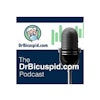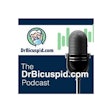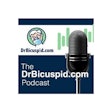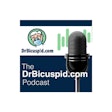
Sustaining optimal oral health as people age may enhance nutritional status that in turn improves one's subjective psychological well-being and may affect survival rates in healthy and unhealthy populations, according to a study published in PLoS One.
Also, there may be a bidirectional association between oral health status and an individual’s social environment, the authors wrote.
“Oral health may not directly influence the subjective well-being, but indirectly, through nutritional status or environmental characteristics,” wrote the authors, led by Noriko Takeuchi, PhD, a senior assistant professor from Okayama University in Japan (PLoS One, November 28, 2023, Vol. 18:11, e0295078).
Worldwide, people are living longer than ever. By 2015, the global population of people age 60 and older is expected to double to 2.1 billion. Between 2020 and 2050, the population of those age 80 and older is expected to triple to 426 million, according to the World Health Organization (WHO). As the world's aging population grows, health and social systems need to be prepared to meet the needs associated with this demographic shift.
To better understand the possible association between oral health and mental health in older adults, researchers investigated individual and environmental factors, oral health, and nutritional status related to the well-being of a total of 218 adults age 60 and older.
Well-being was assessed using the WHO Five Well-Being Index and factors like social networks, life-space mobility, and medical history. Nutritional status was assessed using a mininutritional assessment that was specifically designed for older adults, according to the study. Additionally, oral health was assessed based on the number of remaining and functional teeth a participant had, bacteria detected in their tongue coating, oral wetness, tongue pressure, occlusal force, oral diadochokinesis, one's chewing ability, and their swallowing function, they wrote.
A significant connection between oral condition and nutritional assessment scores (coefficient = 0.160, p = 0.036) was revealed. Also, nutritional scores were notably linked to well-being scores (coefficient = 0.190, p = 0.018). Environmental characteristics demonstrated significant associations with oral health status (coefficient = 0.223, p = 0.027), nutritional assessment scores (coefficient = 0.351, p = 0.001), and well-being scores (coefficient = 0.361, p <0.001), the authors wrote.
The study had limitations, including the study type. Since it was a cross-sectional study, a causal link between each factor could not be established, Takeuchi et al wrote. In the future, additional research with a larger patient population is needed, they wrote.
“The results of the present study suggest associations between oral condition and nutritional status and between nutritional status and subjective well-being among older adults attending a university hospital dental clinic, as influenced by environmental characteristics,” the authors wrote.




















